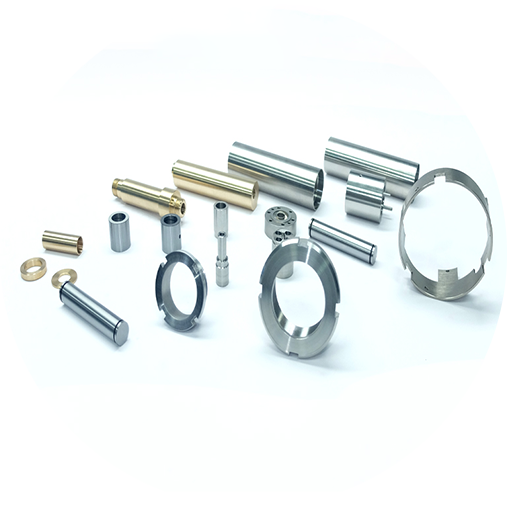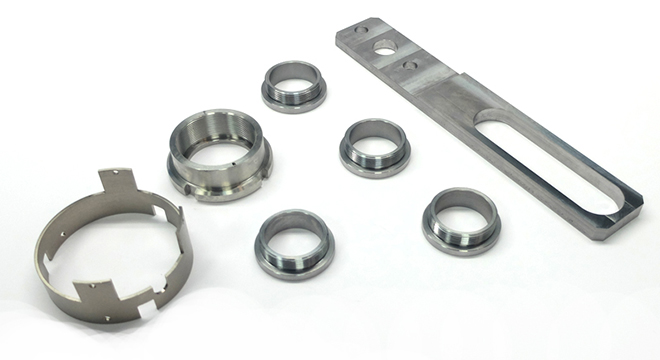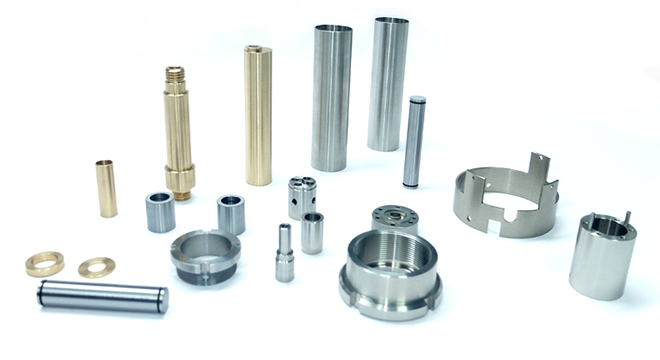
Alloy steel has been used since several years in the manufacturing sector to make various heavy duty and rugged parts, components, and products such as gates, pins, screws, rods, bolts, and more. Alloy steel mainly comprises manganese, molybdenum, nickel, chromium, silicon, vanadium, and boron in varied proportions. It also contains traces of aluminum, copper, tungsten, tin, zinc, lead, cerium, titanium, and zirconium. All of these elements offer this alloy excellent mechanical strength and toughness. Penas offers alloy steel CNC machining services, and we machine many variants of this alloy to offer the required strength and toughness to the part. Based on the level of strength and many other factors such as wear and impact resistance as well as specific client requirements, the right variant of alloy steel is decided. Additionally, we offer cryogenic deburring for a fine finish of your parts.

Properties of Alloy Steel
Alloy steel is known for the robustness it adds to the product. Here are some properties of alloy steel which attribute to the wide use of alloy steel machined parts across sectors.
● As mentioned, this alloy contains several sturdy metals and small and large quantities, and this helps increase mechanical strength and structural stability as well as sturdiness. It is crucial to use the required metals in the right proportion.
● These property enhancing elements also improve the overall resistance to high temperatures, corrosion, and so on.
● They are highly ductile and can be easily machined upon increasing certain elements such as lead.
● The right proportion of metals such as chromium and copper enhance properties such as heat resistance.
● Alloy steel 1215 can be easily welded at high speeds; however, it has a low tensile strength as well as hardening ability. On the other hand, alloy steel 4340 can be welded at moderate speeds. However, it is tough, can be heat treated, and has moderate resistance to corrosion and wear.
● On an average, the high operating temperature range for most variants of alloy steel ranges between 600 and 700 degrees Celsius.

Grades of Alloy Steel We Work With
As mentioned, there are several grades of alloy steel depending on the percentage of each metal. For instance, if you are looking for robustness, you can choose alloy steel 4140 which has relatively more quantities of molybdenum, carbon and so on compared to alloy steel 1018 which is a mild variant. Primarily, in alloy steel, carbon steel is combined with metals such as molybdenum, copper, nickel, chromium, silicon, and so on to add specific attributes or enhance the properties of carbon steel, such as corrosion resistance, hardness, and so on. When choosing the type, we also consider if any extra finishing and post processing techniques need to be performed. Here are some grades of alloy steel we regularly work with:
● Alloy Steel 4140: This grade is largely a combination of chromium and molybdenum in carbon steel. Molybdenum increases shock and heat resistance as well as mechanical strength.
● Alloy Steel 4340: This grade is largely a combination of nickel, chromium and molybdenum in carbon steel. Nickel increases corrosion resistance and strength.
● Alloy Steel 6150: This grade features vanadium and chromium in carbon steel. Vanadium enhances the resistance to corrosion as well as vibration and increases toughness. Both chromium and vanadium increases the tensile strength.
● Alloy Steel 8620: This grade is a combination of nickel, HSLA, chromium and molybdenum in carbon steel. HSLA stands for high strength low alloy which enhances mechanical strength. This also increases the welding ability of the grade.
NAVIGATION